There are several stages of the process, and being able to crack Google coding interview problems is just one part of the process. Having the technical expertise will get your foot through the door, but you have to show real potential for growth and learning to become part of the Google team.
Here’s what you’re in for:
- Resume screening
Google recruiters will evaluate your resume to determine whether you meet the qualifications for your applied role.
Google’s resume tips
- Connect the job description with your resume.
- Don’t ignore data — tangible achievements using numbers matter.
- Highlight projects and achievements in past work experiences, but be concise.
- Come with questions! Show what you understand about Google and what you’re curious about after research.
- Phone and virtual screening
Be prepared for at least two to three recruiter calls:
- There will be a background check (e.g., “Walk me through your resume,” “Why Google?”) and an evaluation of your reasons for interest in the role.
- The virtual screening will be longer and more technical. You may be expected to solve coding problems in real-time. Common topics include:
- Algorithms
- Data structures
- System Design
- The Google loop (on-site interview)
It’s called the loop because you’ll be meeting multiple people back-to-back. You may encounter your future manager, teammate, or even someone from a cross-functional team.
The focus will be on:
- Technical: Algorithm design, coding, System Design, and debugging
- Behavioral: Collaboration, adaptability, problem-solving, communication
- Role-specific: Deep dive into the technical skills needed for the role
- Hiring committee
Google uses a group of third-party individuals who were not present at your interview to remove bias from the coding interview process, and these are the people who will make the hiring decision.
You’ll be judged on:
- Role-related knowledge
- Adaptability
- Leadership and conflict-resolution abilities
- Googleyness
- Review and offer
Once approved, here comes your offer letter! There may be an additional step where candidates find out which team they’ll be working for at Google, and in that case, it’s better to research the teams ahead of the meeting.
The “Googleyness” factor
Google looks for a good amount of Googleyness in all its candidates, but what does this mean, and how can you prepare for it? Googleyness is more than just being a good cultural fit; it is an attitude that extends to a candidate’s work ethic.
Google’s CEO Sundar Pichai narrows it down to
- Mission first
Show that you are equally invested in the success of those around you, regardless of specialty or job title. Give examples from your past job experiences of how you can work as a team player toward the same goals.
For example, describe a cross-team project you took initiative on or how you motivated peers to finish tasks in high-stress situations.
- Make helpful things
Bring a focus toward creating products, tools, and experiences to improve users’ lives. This coincides with Google’s vision to “organize the world’s information and make it universally accessible and useful.”
During a Google interview, focus on displaying:
- User-centered design (systems improving productivity and simplifying tasks)
- Innovation with impact (leverage AI and ML tech, design scalable systems, and contribute to open-source projects that empower developers and communities)
- Focus on utility (mention if you’ve helped or developed tools similar to Maps, Gmail, or Google Calendar that help users manage daily routines)
- Be bold and responsible
Show your ability to move with intention and focus to make things happen–mention instances where you have taken accountability for leadership decisions you’ve made in your previous roles. Mention how you plan to show this as a Googler if hired.
- Stay scrappy
What actions do you take to ensure a tangible result? Mention examples where you have shown commitment to showing results even if it meant taking a risk and which areas you experimented with that led to success.
- Hustle and have fun
Have a balance between a strong and focused work ethic and enjoy innovation and collaboration without being stuck in the mud. In a Google interview, highlight fun parts of your personality where possible! Innovation at Google often goes hand-in-hand with creativity and teamwork.
- Team Google
Research Google’s core values and principles as an industry leader and tech giant. Besides your coding and technical prowess, show you are familiar with Google’s mission, products, and future goals.
Company Guides

